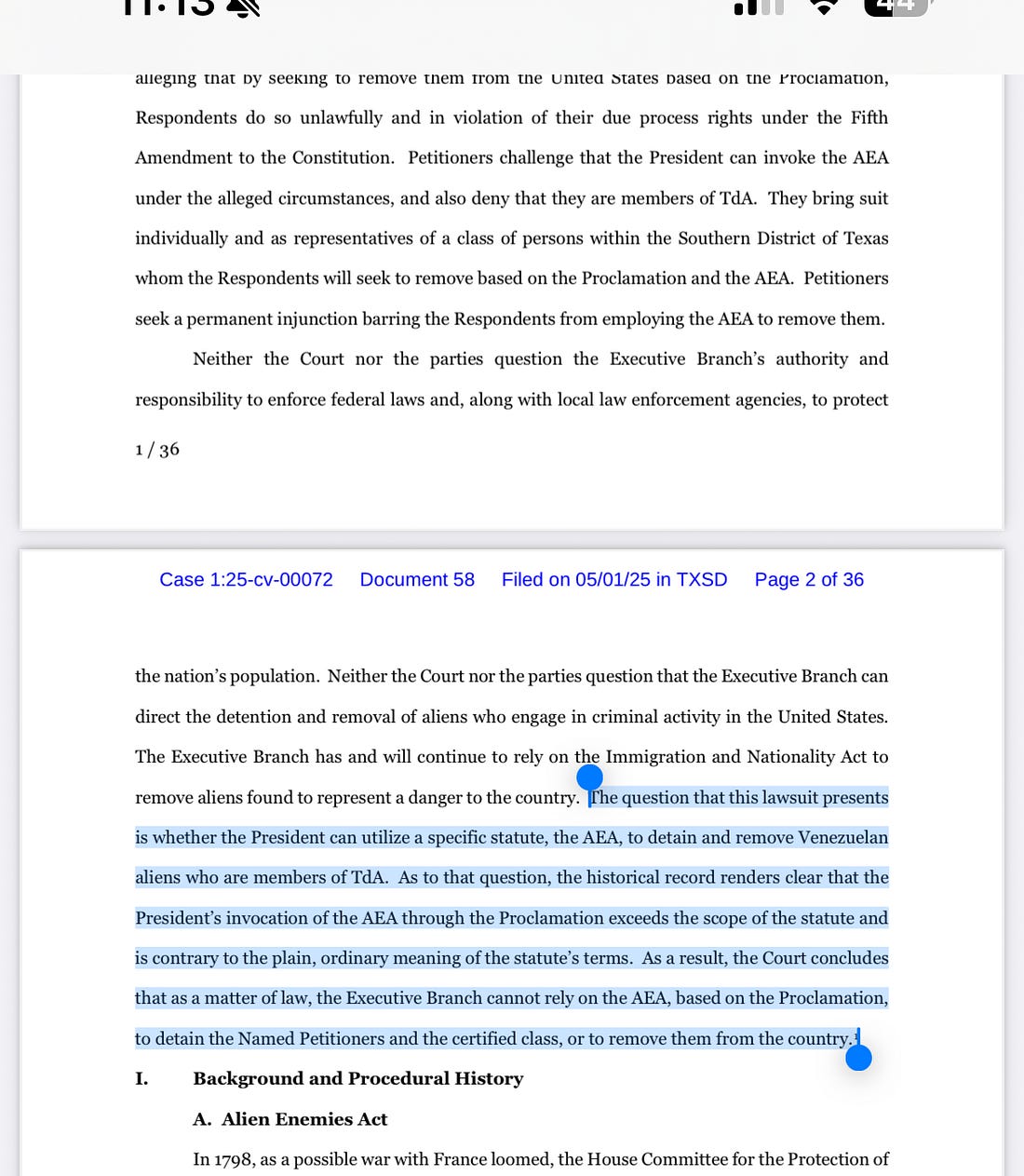|
 |
It’s a rare midday post from me, but this is important breaking legal news!
A Trump-appointed judge in the Southern District of Texas, Fernando Rodriguez, Jr., has held that the Trump administration may not use the Alien Enemies Act to deport alleged members of Tren de Aragua. Judge Rodriguez relied on the plain language of the statute in reaching his decision and wrote that the historical record makes it clear that this is a law intended for use during wartime. He is the first federal judge to hold that Trump’s invocation of the Alien Enemies Act exceeds the scope of what the law authorizes a president to do.
Before this point, court decisions have focused on the speedy deportations the administration has made without giving deportees due process in advance. Courts have swiftly forbidden that and Americans increasingly understand that due process applies to non-citizens and citizens alike, and that a denial of due process to anyone threatens a denial of due process to all.
Now we’ve reached the substantive issue in the case, which is whether the Alien Enemies Act gives Trump the authority to deport people. The government will appeal Judge Rodriguez’s decision holding it can’t do so to the heavily conservative Fifth Circuit. Whether they reverse or not, this has always been an issue that was destined to go to the Supreme Court for resolution. They will have multiple options:
Affirm or reverse (as the case may be) the Court of Appeals without hearing the case themselves.
Agree to hear the case, expedite it, and decide it this term. This term of Court should end no later than the first week in July.
Take the case and set it for next term, which would leave the issue undecided until at least next fall.
Of course, how this plays out likely depends on how quickly the Fifth Circuit rules. The government may petition the Court to skip over the Circuit and take the case immediately, as it is inevitably headed there. We saw the Court decline to take that approach in Trump v. U.S., the case involving Trump’s immunity from criminal prosecution.
If the Fifth Circuit moves expeditiously, the second option seems to be the most likely one, although it would require a fast schedule for briefing and for oral argument. Now that the damn is broken, it’s possible that judges in other circuits will weigh in as well.
The Judge makes it clear that the government can continue to deport people under other immigration authorities, so long as their due process rights are satisfied. His ruling applies to the plaintiffs who brought the case, as well as to a class of similarly situated people in the Southern District of Texas. Following the Supreme Court’s decision last month, there can’t be nationwide habeas relief. Instead, lawyers have to file proceedings like this in each of the 94 federal districts in the country where people challenging the government’s ability to deport them either reside or are being held.
Now you’re up to date!
Thanks for reading Civil Discourse. I know you have an increasing number of choices on Substack—I get more and more of my news from my favorites here. So I appreciate your decision to stick with me and support me.
We’re in this together,
Joyce
You're currently a free subscriber to Civil Discourse with Joyce Vance . For the full experience, upgrade your subscription.
